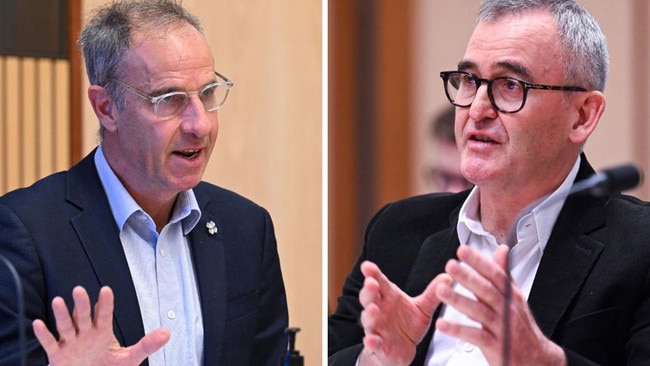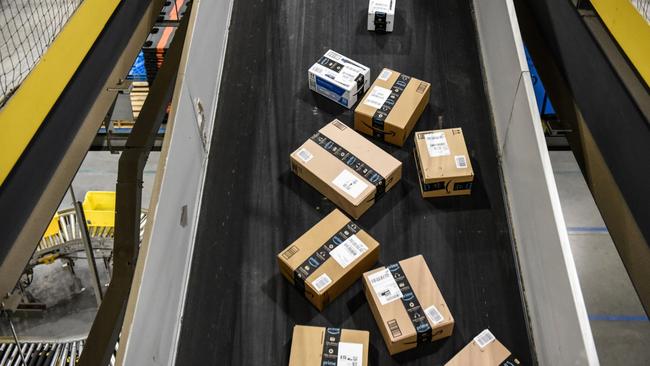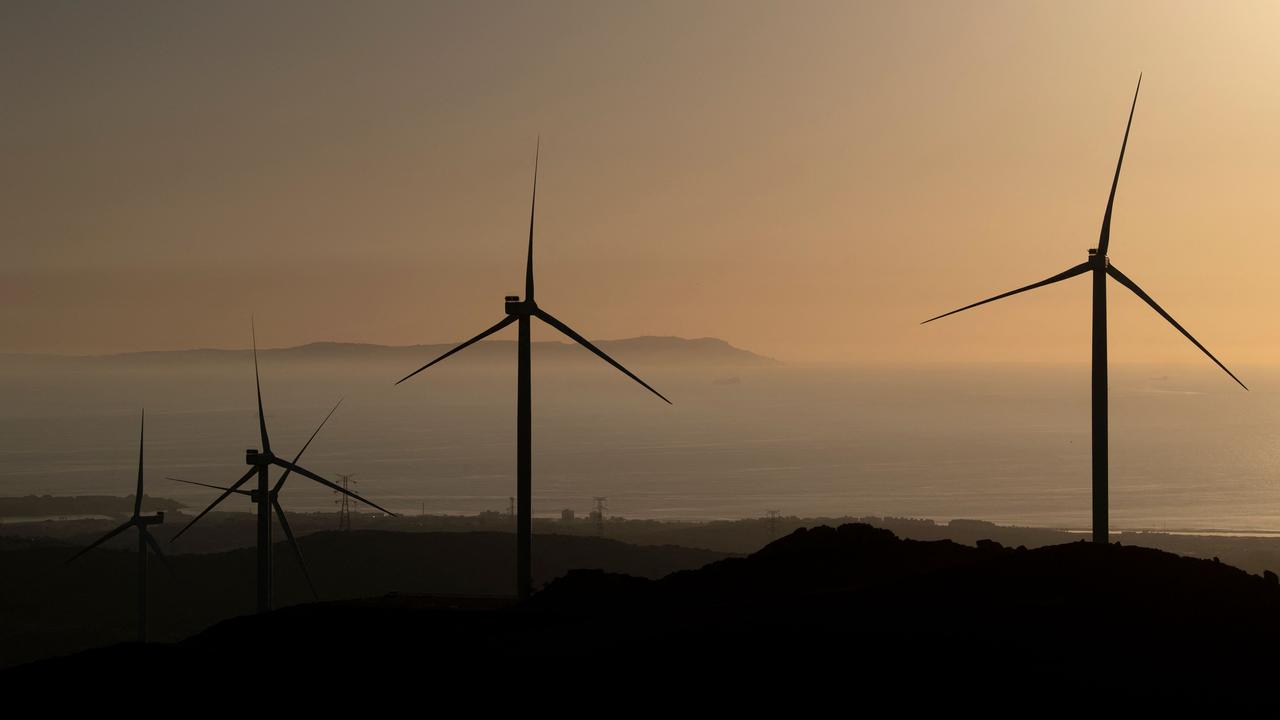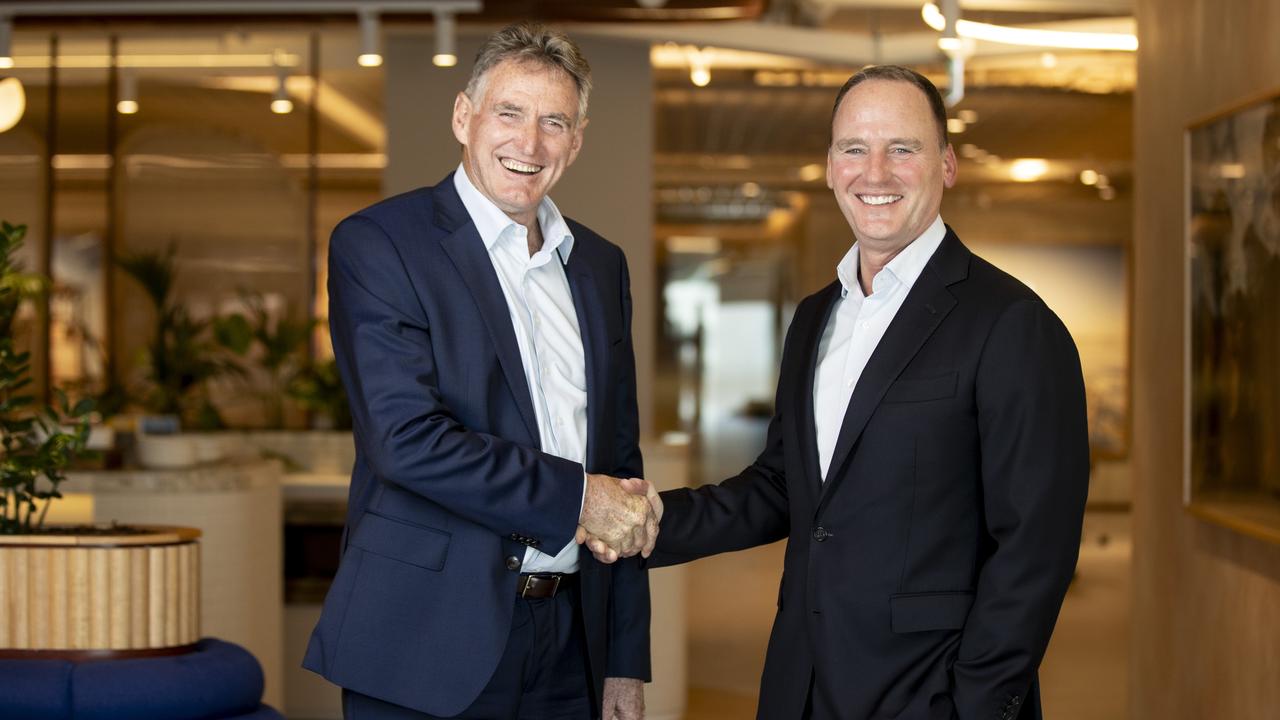Break-up? Why our supermarkets need to get bigger
The Greens’ plan to force Woolies and Coles to shrink only plays into the hands of global gorillas like Amazon, Nestle and Unilever.

Business
Don't miss out on the headlines from Business. Followed categories will be added to My News.
The Greens’ Canberra-based bailiff threatening to lock up Woolworths boss Brad Banducci has a larger agenda in front of him: breaking up the supermarkets.
Pushed on by the encouragement of his party colleagues, Senator Nick McKim was at it again on Wednesday, telling Channel 7’s Sunrise the only way to stop price gouging is for Canberra to have the powers “that allow for duopolies like the supermarket duopoly to be broken up”. That would put more competition in the sector and bring down prices, says McKim, who has spent his entire career supported by the certainty of taxpayer funding.
If McKim really wanted an economic tool to bring prices down, he should be advocating for all supermarkets to get bigger – not smaller.
McKim’s Senate inquiry this week has heard evidence about the power of economies of scale underpinning Australia’s grocery sector. This powerful force means prices for most items are the same whether someone is buying instant coffee in Fremantle or Frankston and everywhere in between. This is vitally important for McKim’s home state of Tasmania, which requires most things on the supermarket shelves to be shipped in. Even though Aldi doesn’t have a single store in Hobart, Tasmanians are still getting the benefits of the retailer’s competition as Woolworths and Coles battle it out in the suburbs of Sydney.
That can only be done with the economies of scale that come from spreading the cost of doing business, from transport and warehousing, wages and energy across millions and millions of customers. It’s a powerful force.
Ordinarily McKim would barely rate a blip on the national stage as another comment from the edges, however the Albanese government, by endorsing McKim’s supermarket inquiry and making him chair, have implicitly given McKim a much bigger megaphone than he would ordinarily have. It’s not the first or last time parliamentary resources are being abused, but the Greens-led supermarket inquiry is just that: giving the Greens policy platform legitimacy.
It’s not beyond Australian politics to bring a fringe economic theory into the mainstream.
For the sake of business certainty, Treasurer Jim Chalmers and his Labor colleagues need to repeatedly call this out and push back on the notion of simply breaking something up because it is big. From banks, airlines, toll-roads, hardware and even supermarkets, big is about building a more efficient business model. Chalmers has endorsed a shake-up of competition rules and that’s the vehicle to examine the market.
The Greens have introduced legislation to bring in divestiture powers, although there is no support for this beyond their own party. However, a recommendation from the supermarkets inquiry could light the fuse given the politically charged environment around the cost of living.
In between being threatened with jail time, Banducci said proposals to break up supermarkets being discussed by the committee and legislation does create some “uncertainty on long-term investments”.
“It does make you want to revisit those,” the Woolworths boss said.

In New Zealand, break-up proposals reached the cabinet last year although the then Labour government declined to move on them. Woolworths also operates one of the country’s two biggest supermarkets chains there.
Nor is it clear what needs to be sold off for divestiture to work. Warehouses? Transport? Store networks? Splitting fresh food from packaged goods? It sounds like this would add costs to shoppers.
McKim’s committee too has failed to grasp that competition for supermarkets not only comes from direct players such as German giant Aldi or ASX-listed Metcash (IGA), but new entrants including Amazon, which is now turning over an estimated $6bn in Australia annually. Other rivals include Wesfarmers-owned Bunnings and Priceline.
Instead of understanding the nature of competition from the US$1.9 trillion ($3 trillion) giant, McKim instead demanded Banducci tell him where Amazon’s physical supermarket is.
How did Amazon get so big? Economies of scale on a global level.
Geography and relatively thin spread of population mean the sheer cost of starting a supermarket from the ground up is daunting. Australia needs to have better transport and planning rules, improved infrastructure and higher productivity to make it easy to do business and encourage new rivals.
Coles chief executive Leah Weckert says a forced break-up would drive up prices as customers lose out from economies of scale. But, she asks, who would buy the portfolio of supermarkets? New players would have to invest billions setting up a new distribution network. More worrying it could lead to less profitable supermarkets in rural and regional towns likely closing with job losses.
In recent years another German major, Kaufland was preparing a full-scale assault on the Australian market but quickly retreated when it realised the high entry price. Kaufland saw a return on its investment by expanding in eastern Europe instead.
As this column has argued previously, Coles and Woolies are regularly pushing back demands for higher prices from their top suppliers that form the bulk of a supermarket basket.
And these are true global gorillas. Proctor & Gamble is capped at $US367bn ($530bn). The company behind Kelloggs is almost as big as Woolies, which is valued at $38bn, while Coles is at $22bn.
Their other big suppliers include Nestle ($375bn), Johnson & Johnson ($542bn) and the UK’s Unilever ($180bn).
How do the interests of Australians fit in when each of those giants is selling household goods to more than 100 countries around the world. They’d be the first to welcome the Greens’ plan for a smaller and regulatory restrained Woolworths or Coles.
johnstone@the australian.com.au
More Coverage
Originally published as Break-up? Why our supermarkets need to get bigger





